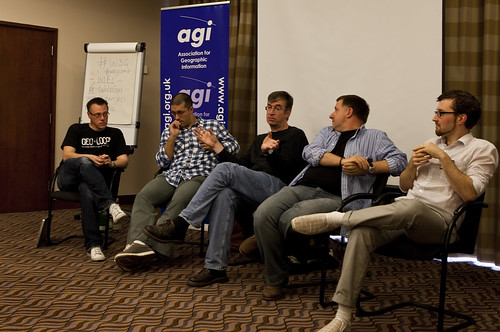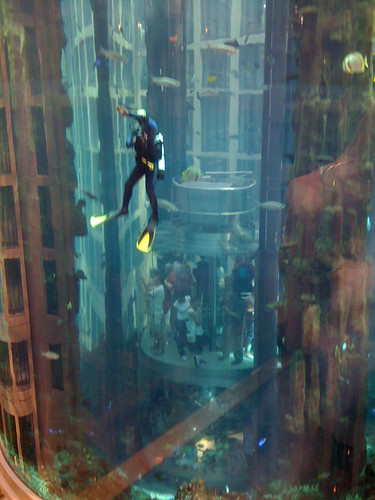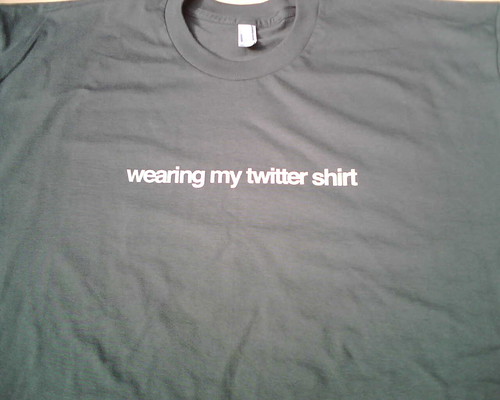Last year GeoCommunity, the annual conference of Britain's Association for Geographic Information, took the brave (and in my view totally necessary) step of branching out from their traditional GIS heartland audience (sometimes referred to somewhat disparagingly as paleotards) to take on board the views of the neo-geographers, Web 2.0 and LBMS community (sometimes equally disparagingly called neotards). Mud-slinging labels aside, both geographic communities benefitted from the Geo-Web Track as it was called. I was lucky enough to be asked to participate and the Geo-Web Track was a resounding success, for both the paleo-geography and neo-geography camps.
This year, attempting to build on the success of the Geo-Web Track, I was asked by the AGI to chair a one day conference to run on the day before GeoCommunity 2009. Originally pitched as a true unconference I went for an (un)conference, half way between the joyous informality of an unconference and the formality of an invited speaker conference. So we had both, unconference sessions (all of which were filled with ease) and a set of invited guest speakers and keynotes. Trying to think of a name, I came up with W3G ... the 3 W's of Geo, which had cropped up in a blog post in April of this year. Any resemblance in name between W3G and the W3C is, of course, purely intentional.

Attending any sort of conference is a tiring affair; chairing and organising one is truly exhausting. While most of the thanks on the day and afterwards were directed at me, the real thanks needs to go to my fellow organiser, Rollo Home, with the support of Chris Holcroft and Claire Huppertz, all of whom had their hands more than full with GeoCommunity starting the very next day after W3G.
As chair, I gave the opening introduction, to set the theme and tone of the day and to introduce the unconference element to those unfamiliar with the concept.
So should W3G have existed at all? The GeoWeb Track at GeoCommunity 2009 certainly showed that there was an appetite for the neo-geographic side of the Location Industry, so why not integrate W3G or the GeoWeb Track into the main GeoCommunity again? That's a difficult decision to come to ... whilst there was probably around 30% of the audience of W3G attending GeoCommunity, that still leaves 70% of the audience who were totally new to the AGI. Would they have paid the asking price of a GeoCommunity ticket? Probably not. The neo-geography side of things does tend to thrive on free or low cost events (with the notable exception of O'Reilly's Where 2.0 in Silicon Valley, which is both excellent and eye-wateringly expensive). So for this year at least, W3G served a valuable dual purpose, bringing the AGI to the attention of a community which probably didn't know it even existed and allowing a whole load of latent geographers to meet, talk, learn and network ... as well as consuming vast amounts of coffee, beer and curry. In that order.
We're already talking about repeating the success of W3G next year in some shape or form; something I definitely want to be involved in. But I would like to see the gap between the GIS heartland and the neo-geographers, which still seem to be a long way apart at times, narrowed or even closed. The AGI is eminently poised to help bring these two parts of the community together and GeoCommunity 2011 would be the ideal event to do this, making it a Geo Community in the truest sense of the word. In 2009 I questioned whether GeoCommunity would unite the two polarised worlds of geo ... the answer in 2010 is that we've take a few steps in the right direction, but we're still not there yet.
Photo Credits: Paul Clarkel on Flickr.





